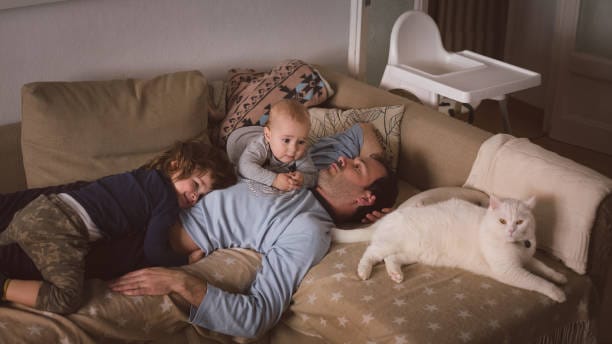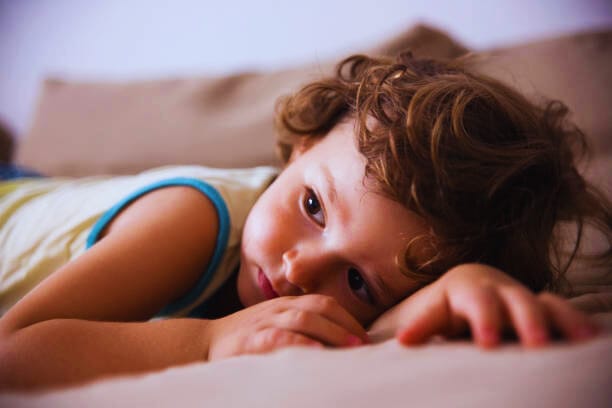Last updated January 03, 2025
Resolving autism and sleep issues is one of the primary tasks for autistic individuals. Around 50% of children with autism spectrum disorder have difficulty falling asleep or staying asleep throughout the night. They may take a couple of hours to sleep, or get up in the middle of the night and start laughing, crying, or playing, and maybe something else.
Less sleep is linked with instances of challenging behavior, attention deficit disorder, depression, and obsessive-compulsive disorder. Sleep disorder is widely seen in autistic having repetitive and restricted behaviors with sensory issues or anxiety. These problems should be addressed ASAP with the help of an expert professional.
Autism and Sleep Issues due to lack of sleep?
Lack of sleep creates many issues with autistic kids as well as with normal people. Parents need to create a list of activities for daytime, bedtime, wake-time, and night-time as well as habits and routines, to find the possible cause of problems in the sleeping cycle. It will help them a lot to a doctor.

- Insufficient sleep at night can cause behavioral challenges such as hyperactivity, and irritability, and it might interfere with learning and reduce overall performance.
- The kids who slept fewer hours faced issues with social relationships, and those children were found in compulsive rituals that served no purpose.
- Recent research has indicated that kids with autism and lack of sleep are linked and they might face the following characteristics:
- Hyperactivity
- Depression
- Increased behavioral problems
- Aggression
- Irritability
- Poor learning and cognitive performance
- It is found that children with autism have less sleep than normal ones.
Autism and sleep apnea are common issues in autistic people
Autism and sleep apnea are found commonly in autistic people by a recent Study. It shows people with autism tend to sleeplessness. Autistic people take an average of 15 minutes more to fall asleep, and many wake up early or frequently during the night.
Some people with autism have sleep apnea which causes them to stop breathing several times while sleeping.
Causes of Autism and sleep issues
Like autism, there are numerous possible causes of sleep issues but still, they are yet to be proven as medical science could not prove.
Possible Causes of Autism and Sleeping Issues
Here are some possible causes of Autism and sleeping issues as follows:
- Genetics:
- It is possible that due to genetic causes of autism might have some impact on falling asleep, staying asleep, and awake refreshed.
- Sensory Issues:
- Most autistic children are hyper-responsive to sensory input. Because they can’t easily block out noises and sensations and it disturbs them from sleeping properly.
- Lack of melatonin Hormone:
- Melatonin hormone helps in sleeping and the studies suggest that people with autism produce less melatonin while sleeping and it may be the cause of less sleeping in neurotypical people.
- Physical or Mental Illness:
- Physical and mental illness can also be the cause of sleep issues. People with autism tend to have other physical and mental illness issues that may affect sleep. Some other problems also may be responsible like sleep apnea, ADHD, obsessive-compulsive disorder, acid reflux, seizure disorders, and anxiety can all make it harder to sleep.
Autism and sleeping problem advice
Here are some tips for improving Autism and sleeping problems with an autistic child. These are also similar to those used for neurotypical children. Here are some of the most effective techniques, according to researchers: there are some lifestyle changes that need to be implemented for better slipping. It can improve the sleep time and lifestyle quality of kids with ASD.
Tips to improve autism and sleeping problems:
- Keep the bedroom cool, and dark, use blackout curtains which may help to avoid sensory issues.
- schedule a regular bedtime routine and start at least an hour before the scheduled time.
- Train your child to help him fall asleep without you in the bedroom. If this is an ongoing issue, you may have to make the process very slow, starting with sitting on the other side of the room and slowly moving farther away until you’re actually outside the door.
- Relax your child before bed by giving a massage, reading a book, or turning on soft music.
- Switch off the television, video games, and other stimulating activities one hour before going to bed.
- Take advice from a pediatrician about how to take melatonin just before bedtime. This dietary supplement helps in sleeping. It may help to normalize sleep-wake cycles in autistic children.
- Speaking to your psychologist for bright-light therapy also helps.
Closing Words:
A good night’s sleep is a must for everyone. If you are facing ongoing sleep issues you must visit your family doctors. And the parents need to find a way in accordance with their children. In this article, we have done detailed research on sleep issues and hope you will find your answer.
